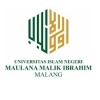THE EFFECTIVENESS OF INDIRECT WRITTEN CORRECTION ON ENGLISH WRITING SKILLS
Abstract
This study purposed to gain the difference between students’ academic performance in writing skills who are taught by using indirect written correction and those do not. The research design used quasi-experimental design because this study did not do randomization. In this experimental design, the researcher used two classes to become the subject. One class was experimental class which treated by using indirect correction technique while the other class was control class which was not treated by using indirect correction technique. The subject of this study was seven grade in MTs Pontren Surya Buana Malang.; 7C became control group and 7D was became experimental group. Both of groups consisted 24 students. Both of groups consisted 35 students. This data used t-test to find the significant difference of both groups. The result was difference between two groups 17, 16 and the std. deviation difference is 0, 92. T-test count =18, 591 > t- table =1, 679 and p-value 0.000< α (0, 05). It applied that the technique was effective. The conclusion is indirect correction technique is effective to teach writing skills. Then, it is suggested to the teacher to apply or implement a different writing technique to practice and improve the students’ writing, especially by using corrective feedback that have been practiced before. The next researchers can use another technique in their research such as direct corrective feedback because this research uses indirect corrective feedback to improve writing skills
Full Text:
PDFReferences
Ahmad, S. (2015). A comparative study of effectiveness of direct and indirect feedback method for urdu efl learners’ writings. International Journal of English and Education, 4, 225-240
Beuningen, V. C. (2010).Correctie Feedback in L2 Writing: Theoritical erspective, Empiical Insight and Future Directions. IJES, 10(2), 1-27
Bitchener, J., & Knoch, U. (2009). The Value of a Focused approach to Written Corrective Feedback. ELT Journal, 63(3), 204-211
Chandler, J. (2003). The efficacy of various kinds of error feedback for improvement in the accuracy and fluency of L2 student writing. Journal of Second Language Writing, 12, 267-296.
Ellis, R. (2009). A typology of written corrective feedback types. ELT J, 63(2), 97-107.
Ellis, R. A. (2008).Typology of Written Corrective Feedback Types. ELT Journal, 63(3). 97-107
Ferris, D. (1999). The case for grammar correction in L2 writing classes: A response to Truscott (1996). Journal of Second Language Writing, 8, 1-10.
Ferris, D. R., & Helt, M. (2000). Was Truscott right? New evidence on the effects of error correction in L2 writing classes. Paper presented at the American Association of Applied Linguistics Conference. Vancouver, BC, March, 11-14.
JEASP
Ferris, D.R. (2004). The “Grammar Correction” Debate in L2 Writing: where are we, and where do we go from here? Journal of Second Language Writing, 13, 49-62.
Frantzen, D. (1995). The effects of grammar supplementation on written accuracy in an intermediate Spanish content course. Modern Language Journal, 79, 329-344.
Guenette, D., & Lyster, R. (2013). Written Corrective Feedback and Its Challenges for Pre-Service ESL Teachers. The Canadian Modern Language Review, 69, 129-153.
Guenette, D. (2012). The Pedagogy of Error Correction: Surviving The Written Corrective Feedback Challenge. TESL Canada Journal, 30, 117-126.
Lalande, J. F. (1982). Reducing composition errors: an experiment. Modern Language Journal, 66, 140-149.
Li, S., & Li, P. (2012). Individual Differences in Written Corrective Feedback; A Multicase Study. English Language Teaching. Canadian Center of Science and Education, 5, 38-
Park, E. S. (2015). To What Extent Do Learners Benefit From Indirect Written Corrective Feedback? A Study Targeting Learners of Different Proficiency and Heritage
Language Status. SAGE.
Robb, T., Ross, S., & Shortreed, I. (1986). Salience of feedback on error and its effect on EFL writing quality. TESOL Quarterly, 20, 83-93.
Sheen, Y. (2010). Differential Effect of Oral and Written Corrective Feedback in the ESL
Classroom. Studies in Second Language Acquisition. Cambridge University Press, 32, 203-234.
Truscott, J. (1996). The case against grammar correction in L2 Learning, 46, 327- 369.
DOI: https://doi.org/10.18860/jeasp.v1i2.5945
Refbacks
- There are currently no refbacks.

This work is licensed under a Creative Commons Attribution-ShareAlike 4.0 International License.







Editorial Office:
Pusat Pengembangan Bahasa
Program Khusus Pengembangan Bahasa Inggris (PKPBI)
Universitas Islam Negeri Maulana Malik Ibrahim Malang
Gedung C lantai 1
Jl. Gajayana No 50 Kota Malang, Jawa Timur, Indonesia
Kode Pos 65144, Telp/Fax : (0341) 570872
Email: jeasp@uin-malang.ac.id
JEASP : Journal of English for Academic and Specific Purposes is licensed under a Creative Commons Attribution-ShareAlike 4.0 International











